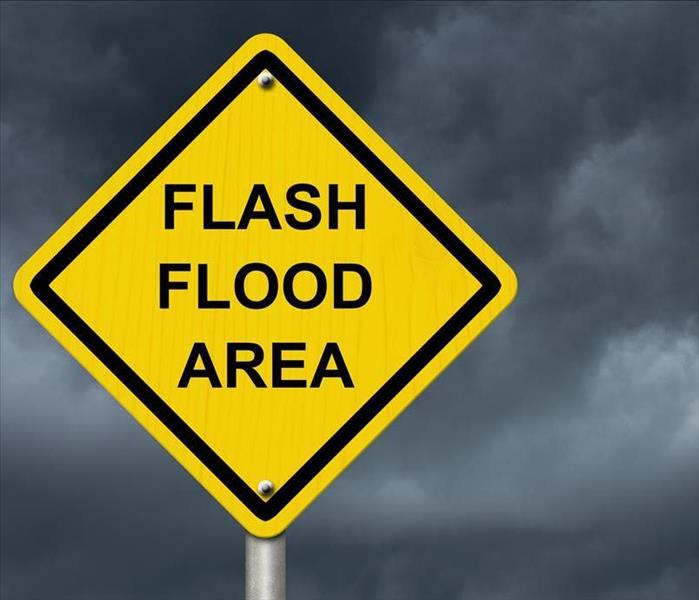11 Flood Safety Tips
2/22/2022 (Permalink)
Flooding can cause serious property damage and create dangerous conditions for property owners and their families. These tips can help you improve your flood safety plan.
11 Flood Safety Tips for Homeowners
You may have limited time to take action when a flood event occurs. For that reason, it is important to have a safety plan in place before a flood happens. These 11 safety tips can help you create your plan:
1. Gather Emergency Supplies
Suggested items include flashlights, batteries, a weather radio, a first aid kit, a sealed plastic bag with necessary medications, pet food and enough non-perishable food and water for three days. Store a minimum of one gallon of water per person and pet for each day.
2. Listen to Weather Updates
Turn on a radio or television and pay attention to weather updates. If flooding seems imminent, prepare to evacuate.
3. Check Immunization Records
If you have a copy of your family's immunization records, store them in a flood proof bag or container. Check the date of everyone's most recent tetanus shot.
4. Secure Outdoor Possessions
Bring lawn furniture, trash cans, grills and other outdoor items inside or secure them to something that isn't likely to float away. You may want to cover securely anchored items that can't be moved with plastic to reduce the amount of damage from water.
5. Turn Off Utilities
If you will need to evacuate as a flood safety measure, switch off all utilities at the main breaker and close the main gas valve.
6. Move To Higher Ground
If you are in a low-lying area, move to higher ground. If you are in a vehicle, avoid driving through floodwater.
7. Avoid Floodwater
Do not return to your home until local authorities have told you it is safe. Do not use floodwater for drinking, bathing, washing dishes, brushing your teeth or preparing food.
8. Dry Out Your Home
Once you have been given the OK to return home, contact a flood remediation company in West Valley City, UT, to dry out your home. Do this as soon as possible. The longer your home remains wet, the more likely you are to have problems, such as rot or mold.
9. Be Aware of Boil Orders
Flood conditions can make tap water unsafe for drinking and bathing. Check the local news for announcements about boil orders. If there is a boil order, only use bottled, treated or boiled water for cooking, drinking or bathing.
10. Avoid Potentially Contaminated Food and Drink
Any food or drinks that may have been in contact with contaminated water should be thrown out. If you aren't sure, throw it out.
11. Avoid Carbon Monoxide Poisoning
If you run a generator or pressure washer, make sure it is a minimum of 20 feet away from windows, doors or vents. Don't run your vehicle inside an attached garage, even if the garage door is open.
Preventing damage to your property is important in a flooding situation, but flood safety is more important. It is better to sacrifice property than to risk your family.






 24/7 Emergency Service
24/7 Emergency Service
